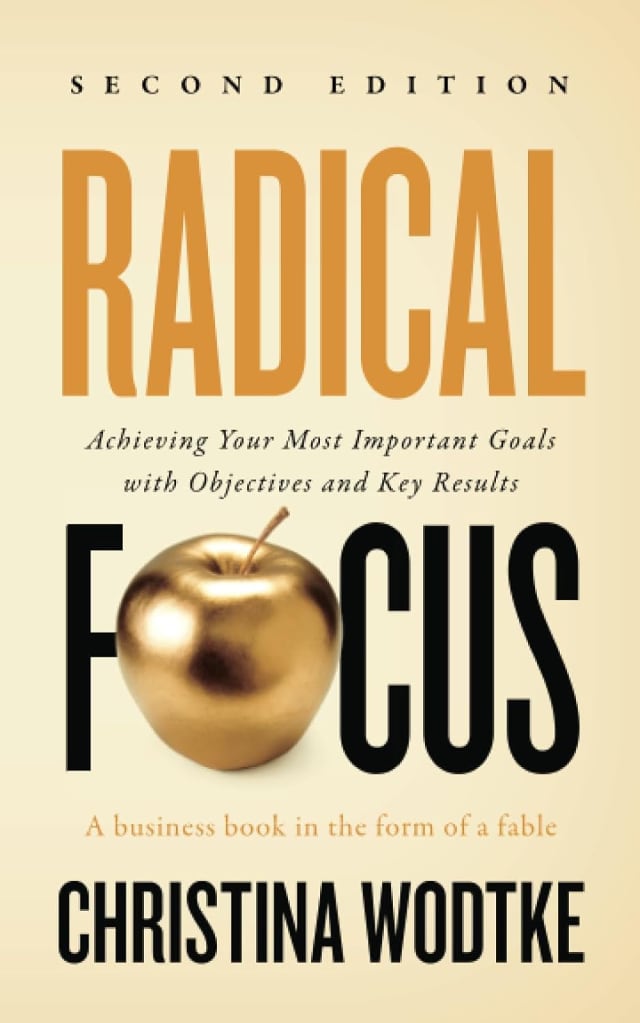Book review: Radical Focus
Objectives and key results as both fiction and framework, by Christina Wodtke 2024-04-09 #product #book #review
Radical Focus (second edition), by Christina Wodtke, introduces objectives and key results (OKRs), with a twist. As well as its product management framework, the book literally tells a story.
Introduction
The introduction starts by explaining that ideas don’t matter, and why focus does. Wodtke writes:
It’s not important to protect an idea. It’s important to protect the time it takes to make it real.
This book, then, introduces OKRs as a system for achieving focus, in three parts:
- ‘Set inspiring and measurable goals’
- ‘Make sure you and your team are always making progress towards that desired end state’
- ‘Set a cadence that makes sure the group both remembers what they are trying to accomplish and holds each other accountable’
This introduction, briefly explaining what those three parts mean, gave me the first hint that the book would fill some gaps for me. OKR explanations and implementations often cover the first part, but then fail to grasp the need for the other two, and lose their way.
A business fable
After sixteen pages of forewords and introductions to the two editions, the next third of the book contains a fictionalised account of a start-up’s search for product-market fit.
The Executioner’s Tale tells the story of a fictional start-up called TeeBee with a vision to bring ‘delicious artisanal loose-leaf tea’ to California. In the story, CEO Hanna and her co-founder, find their way from an initial vision and early customers, through a rocky pivot and struggling with focus, to revenue problems, and failing to achieve their OKRs. Fortunately, with some help from a new arrival, they achieve the missing OKR focus and business success.
This story surprised me most by being so much fun to read, and so compelling. As with The Phoenix Project, the fictionalisation both teaches the subject matter and entertains. Taken together, they make me sad that the software industry doesn’t have more books like this, or even spin-off television series.
The framework
The second half of the book explains the ideas that The Executioner’s Tale introduces, with welcome structure and repetition, split across two sections. This first section spells out the framework - The Fundamentals of OKRs, with a clarity and practical focus that I wish I’d seen before I first used OKRs.
As promised at the start, the framework goes beyond how to write good OKRs, and also covers the cadence that you need to retain focus, week by week. I also appreciated how this section anticipates common questions, mistakes, and things you shouldn’t do.
OKRs in practice
The last section - OKRs in Practice - collects practical scenarios for implementing OKRs, including a few sections by guest authors. This does well to help you understand how you might implement OKRs more broadly than in their original Silicon Valley tech start-up environment, and generally gives more examples of how you might apply the framework.
Despite this extra material, presumably added in the second edition, Radical Focus doesn’t take long to read. If only all business books had this much focus.
⭐️⭐️⭐️⭐️⭐️ Recommended.


